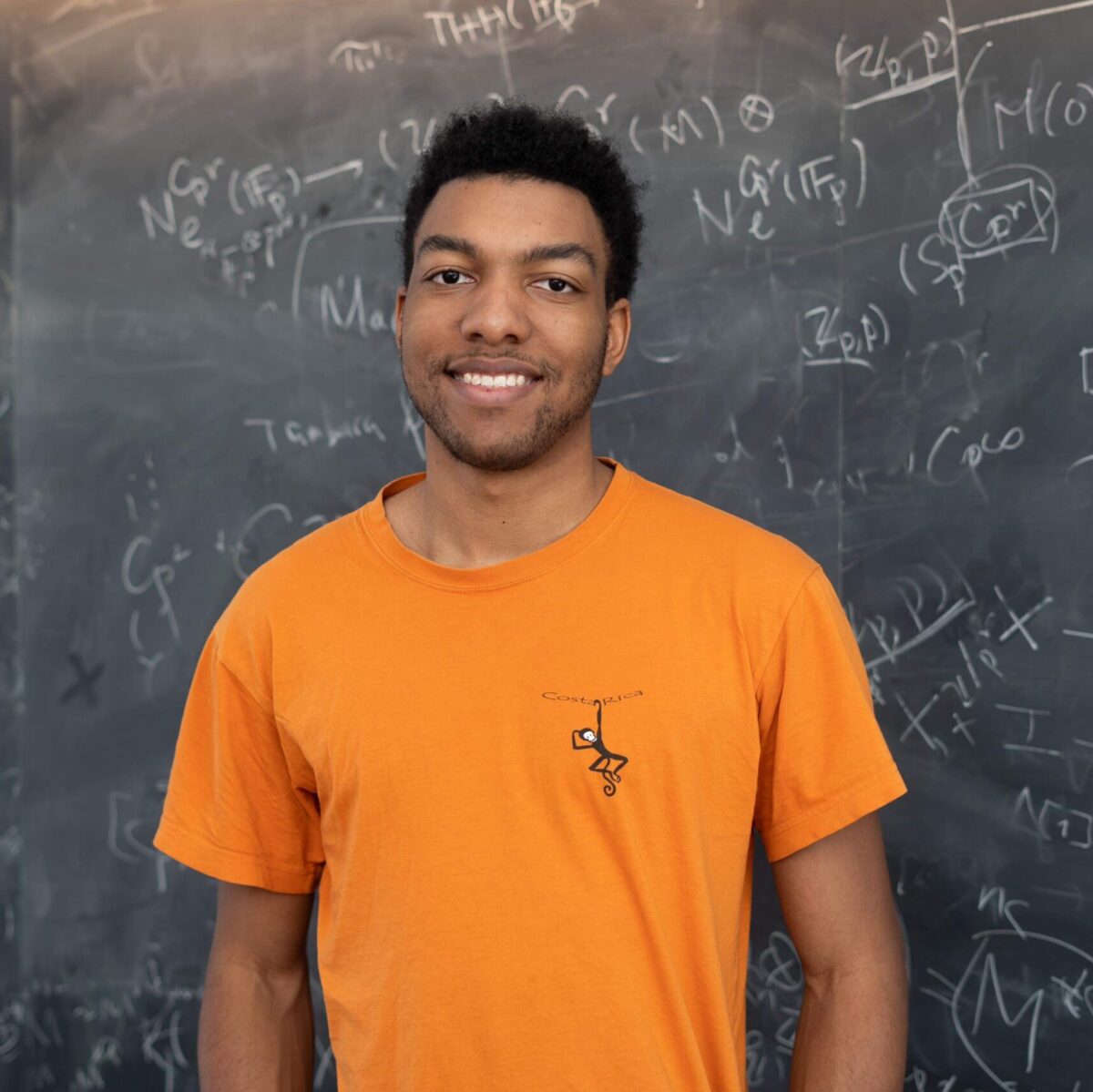
Trajan Hammonds
I grew up on the south side of Chicago. I didn’t always live in the best neighborhoods, but I enjoyed my childhood nonetheless. Growing up, I spent a lot of time playing sports, reading books, playing video games, and playing piano. I didn’t really think much about math until my 6th grade math teacher, Mr. T, gave me a book called “Competition Math for Middle Schoolers.” Soon after, I attended a zero-cost math summer day camp, called YSP, at the nearby University of Chicago where I learned number theory for the first time. After that, I was hooked.
After my freshman year of high school, there was a lot of buzz in the math world. News of Yitang Zhang’s breakthrough on prime gaps made it to the New York Times, a year later, Maryam Mirzakhani became the first woman to win the Fields medal and meanwhile a new youtube channel called Numberphile was posting videos featuring the work of research mathematicians. These media worthy moments inserted mathematical research directly into my purview and I began to treat my mathematical development more intentionally. The summer before my senior year of high school, I attended another zero-cost math camp called “MathROOTS @ MIT,” a program designed for students from underrepresented backgrounds. It was my first time meeting other black kids who were as passionately nerdy about math as I was. At the time, it must’ve been the best two weeks of my life. Afterwards, I knew for sure that I wanted to be a mathematician, and I knew that there was space for me to be one as well.
When I got to college, I was the only black person in the math department, which included some 300+ undergraduates. I found it to be extremely isolating. At the same time, I found ways to explore other places, like going to Moscow for a study abroad program (which admittedly didn’t really help the isolation issue) and participating in Research Experiences for Undergraduates (REUs) each summer. My happiest time was at the MSRI-UP program, which was again designed for students from underrepresented backgrounds. It was there I had the thrill of solving a research problem for the first time and found mentors in academia who looked like me.
In 2020, I started my PhD in mathematics at Princeton, which had been my dream school for some time. Once there, I finally got formal training in number theory and have loved nearly every second of it. From day one, I was welcomed with open arms and have had nothing but positive experiences with the number theory faculty there, especially those who took on an advising role with me.
Although not readily apparent from this narrative, my experience came with a ton of failures and setbacks. I was never the best math student in my class, I never got far in those math competitions I spent thousands of hours studying for, and I was rejected from more programs throughout high school and college than I can count. Every time I was presented with a signal that maybe I wasn’t good enough to pursue math, I simply ignored it. But if there are takeaways from my experiences, the first is this : The importance of programs that promote values of diversity, equity, and inclusion cannot be overstated. Almost every pivotal moment was thanks to programs with these ideals in mind. Second, how we communicate mathematics to the public is fundamentally important and can have a big impact on young students. Finally, pursuing mathematics will come with setbacks, but you can’t let them faze you. Always believe in yourself no matter what. The payoff of seeing what you’re capable of will be well worth it.
